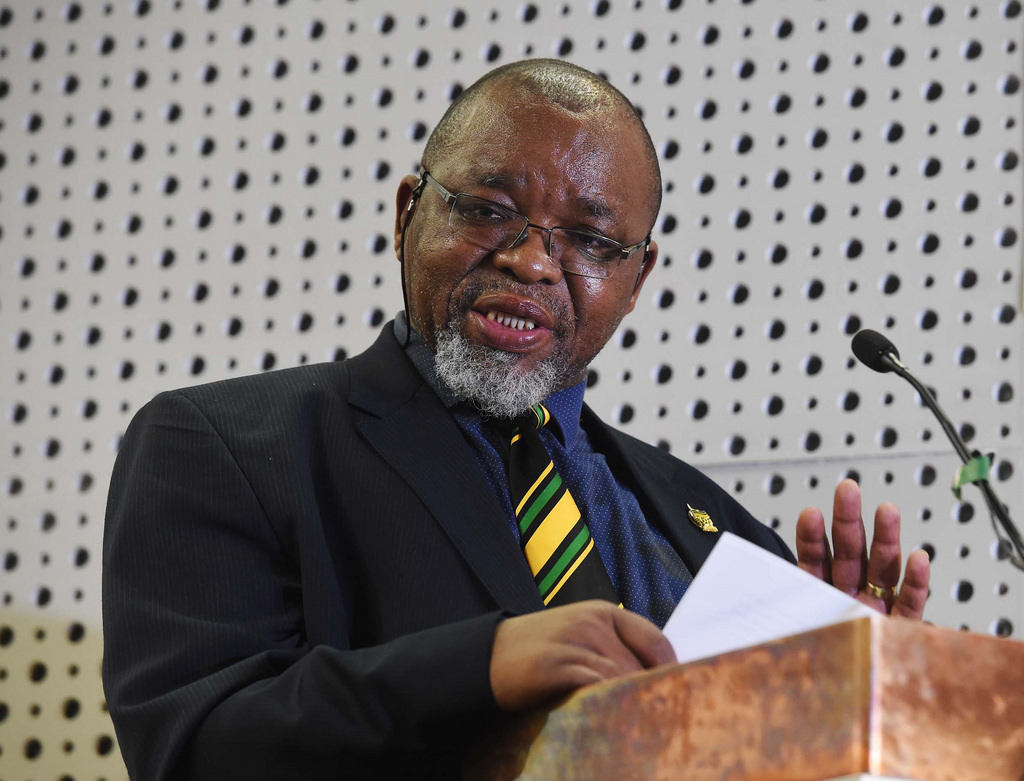Riyaz Patel and Bloomberg
Embattled power utility Eskom announced Thursday that stage 2 load shedding will continue until 6am Friday, after the entity implemented stage 2 blackouts Wednesday night citing generation capacity loss.
This after Eskom implemented its deepest power cuts yet last month, reducing supply by 6,000 megawatts.
The rolling power cuts follows new assurances by President Cyril Ramaphosa that energy challenges were being urgently addressed, playing up a seeming inability to tackle and fix the crisis.
And while Public Enterprises Minister Pravin Gordhan, has borne the brunt of the criticism for the country’s energy crisis, focus is increasingly being shifted onto a cabinet colleague: Mineral Resources and Energy Minister and ANC Chairman Gwede Mantashe, Bloomberg reports.
The former labor union leader is seen as an important political ally of Ramaphosa. Yet most important political allies, yet his perceived reluctance to fast-track renewable power projects could prolong the electricity shortages, stagnating the economy further and eroding investor confidence in the process.
It’s been widely stated that increased use of solar and wind energy would reduce South Africa’s reliance on coal, which is currently used to generate most of the electricity utilized in Africa’s most industrialized economy.
An alarming prospect for the country’s some 87,000 coal miners, many of who are members of the National Union of Mineworkers (NUMSA) which Mantashe led from 1998 to 2006, reports Bloomberg.
It would also increase pressure on the state-owned utility to slash its bloated workforce of more 46,000 – a prospect vigorously opposed by the unions.
“He is a calculating man. The reason he is where he is is because he comes with the unions,” analyst Ralph Mathekga told the platform.
“He manages to restrain Ramaphosa in the interest of his old traditional allies.”
Furthermore, private producers dominate the production of green energy and an enhanced role for them would mean a diminished one for state-owned Eskom.
Mantashe “does not believe in privatization,” Mathekga said. “He is a trade unionist at heart.”
The gravity of the situation became more evident when outages struck at a time when many power-hungry factories were closed for the holiday season. Most have now restarted, adding strain to the grid.
“Nothing is being done” to enable additional power generation, said Dave Long, general secretary of the South African Independent Power Producers Association.
Experts say one of the quickest ways to boost electricity output would be to allow private business to generate as much as 10 megawatts without a license, up from a current limit of 1 megawatt.
While former Energy Minister Jeff Radebe initiated the process of raising the threshold last year, Mantashe, Bloomberg reported, has failed to follow through since assuming the energy portfolio.
Mantashe was spurred into action last month when Eskom instituted its deepest power cuts yet, reducing supply by 6,000 megawatts, and published a request for information for short-term power supply options of as much as 3,000 megawatts within a year.
That process, though, is unlikely to deliver the desired results, Long believes.
The minister has already engaged the regulator “in order to fast track the licensing for small-scale generators,” the energy department said.
South Africa had one of the world’s most successful green energy purchase programs, Bloomberg says, but stopped seeking bids for new projects in 2016 as former President Jacob Zuma pushed a nuclear power deal with Russia that’s since been abandoned.
The last power off-take agreements were signed with 27 independent producers in 2018.
Mantashe last month said discussions were underway to establish which of those projects could still be brought on stream this year and that additional investment rounds won’t start until that process is concluded.
“Every day that we delay buying new capacity is a day lost and a day that’s going to cost us dearly,” said Wido Schnabel, chairman of the South African Photovoltaic Industry Association.
The process of the formal request is necessary in order “for the minister to consider all options without any bias against or preference for a particular technology,” the Department of Energy said.
Mathekga said Ramaphosa, himself a former NUMSA leader, is reluctant to act against Mantashe because his control over the ruling African National Congress remains tenuous and he needs to keep his labor allies on side.
“If you replace him, the unions will overrun Ramaphosa. If you retain Mantashe you say you are happy with this moderated approach, and that the unions’ interests are paramount.”
Last month, Cosatu general-secretary Bheki Ntshalintshali said Mantashe, along with Gordhan, have demonstrated they do not “understand the degree of frustration” faced by South Africans over the rolling blackouts.
Additional reporting by Bloomberg

